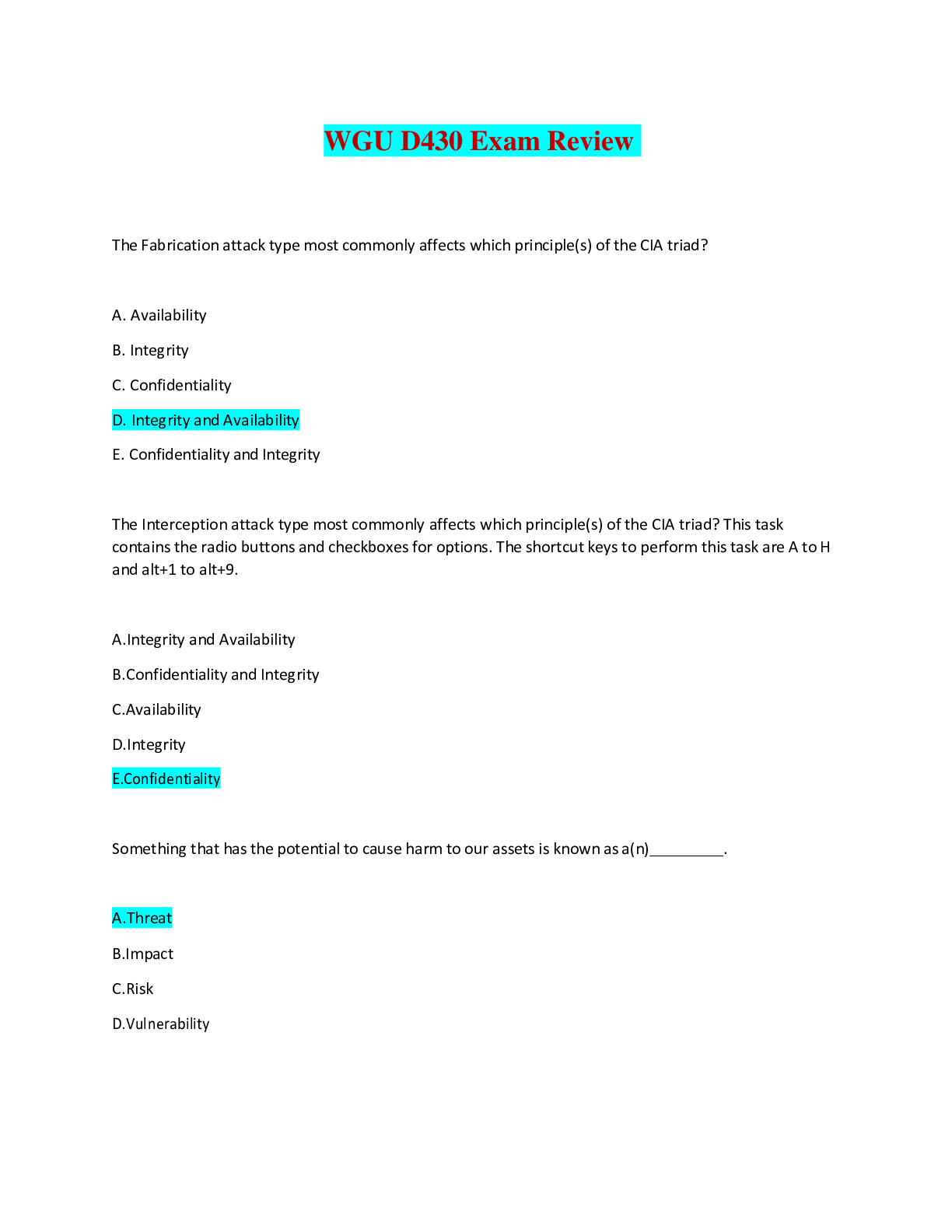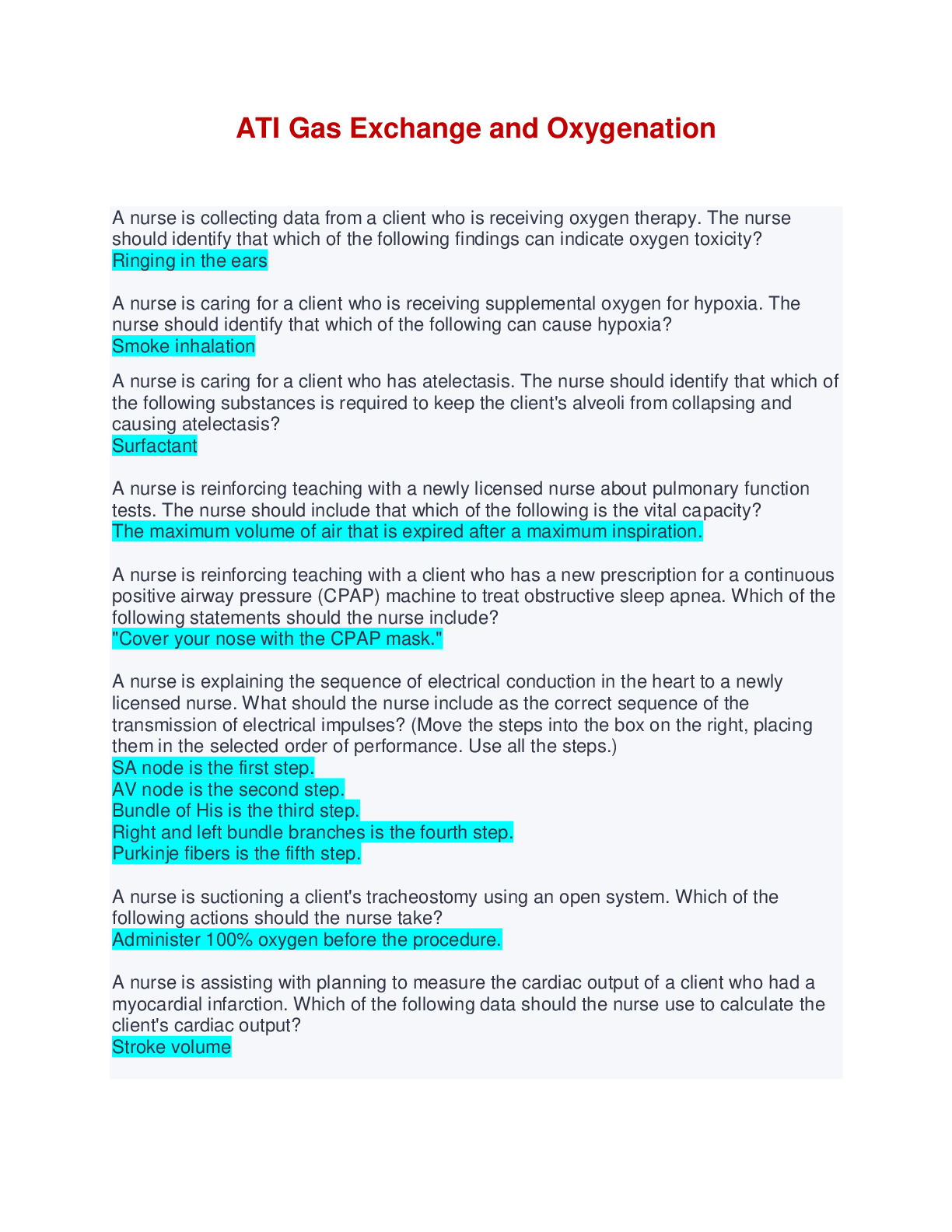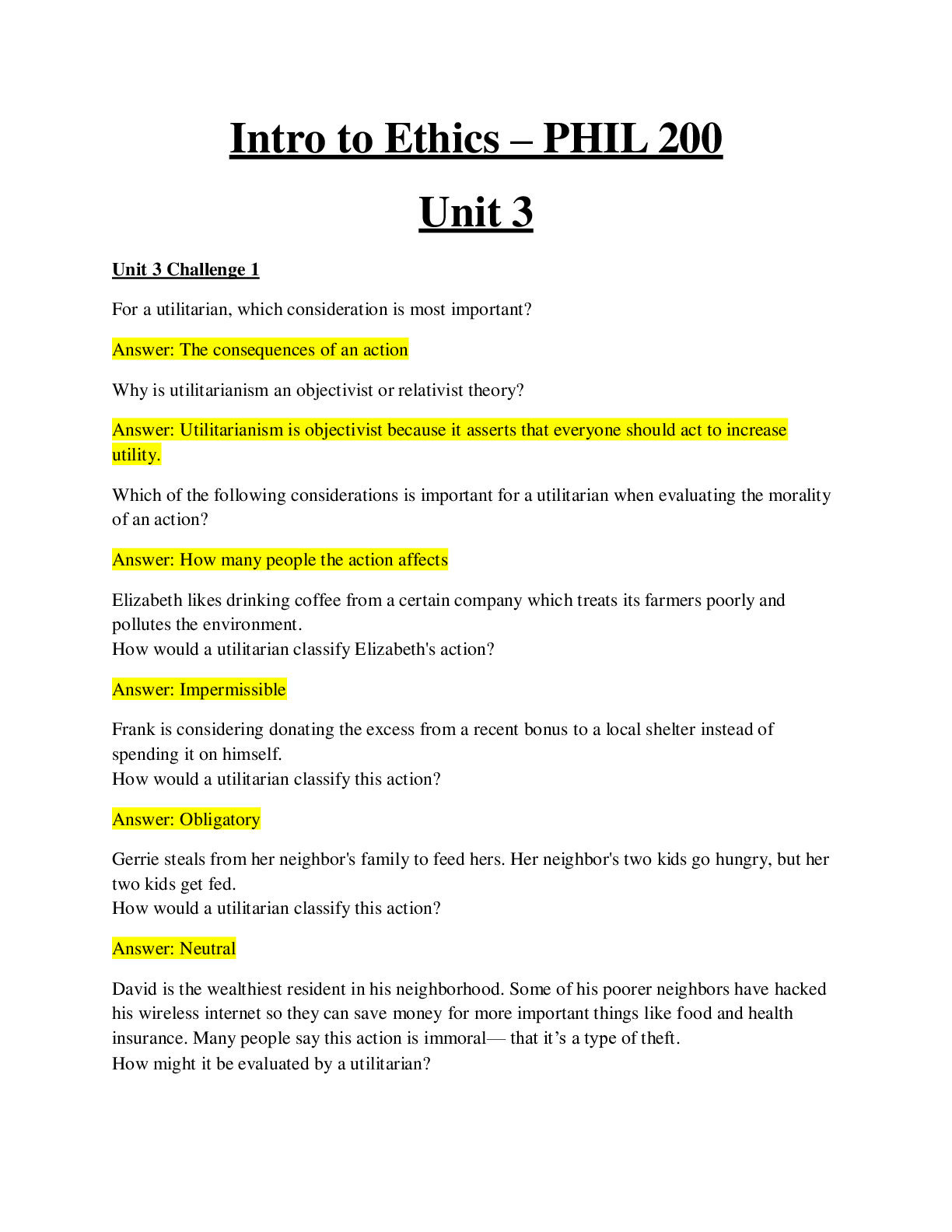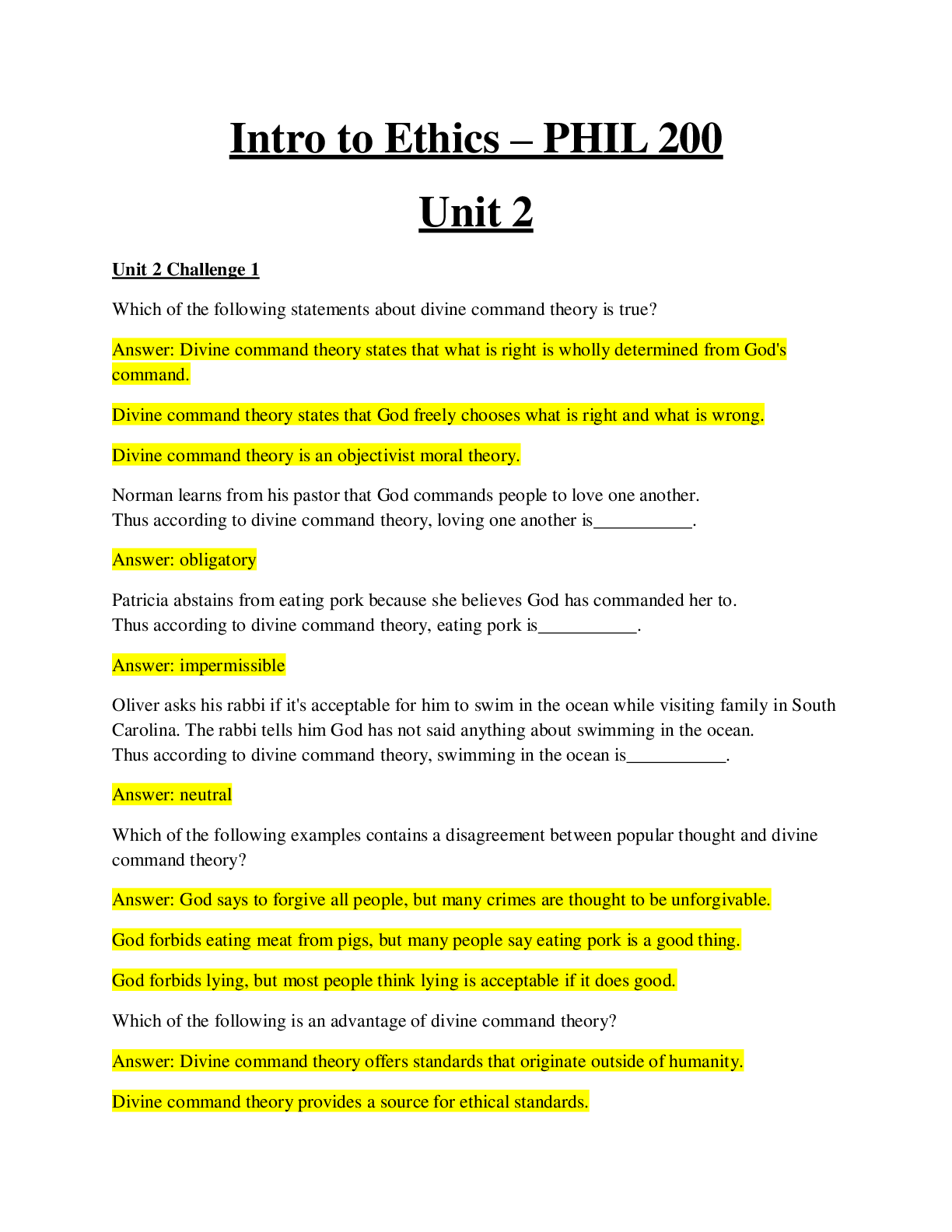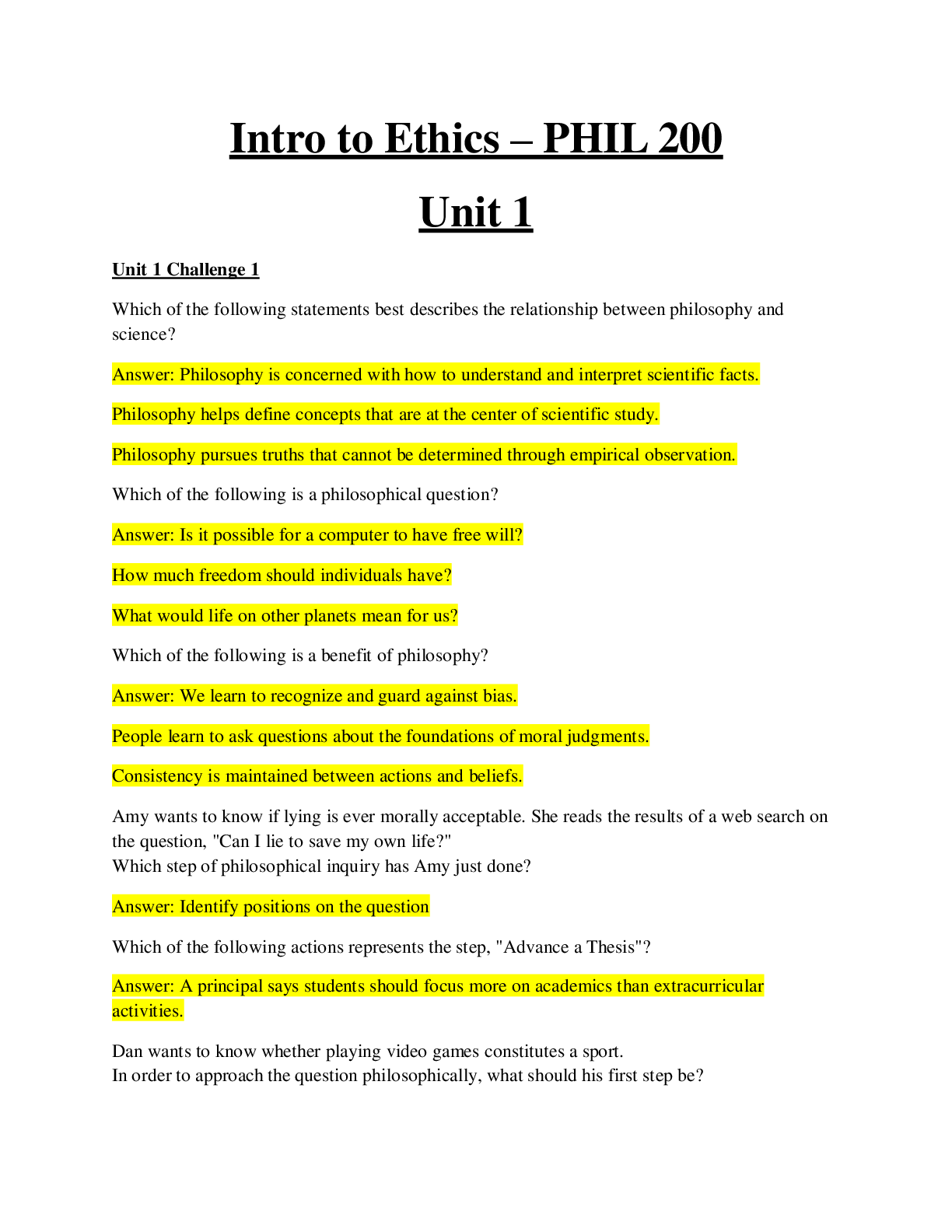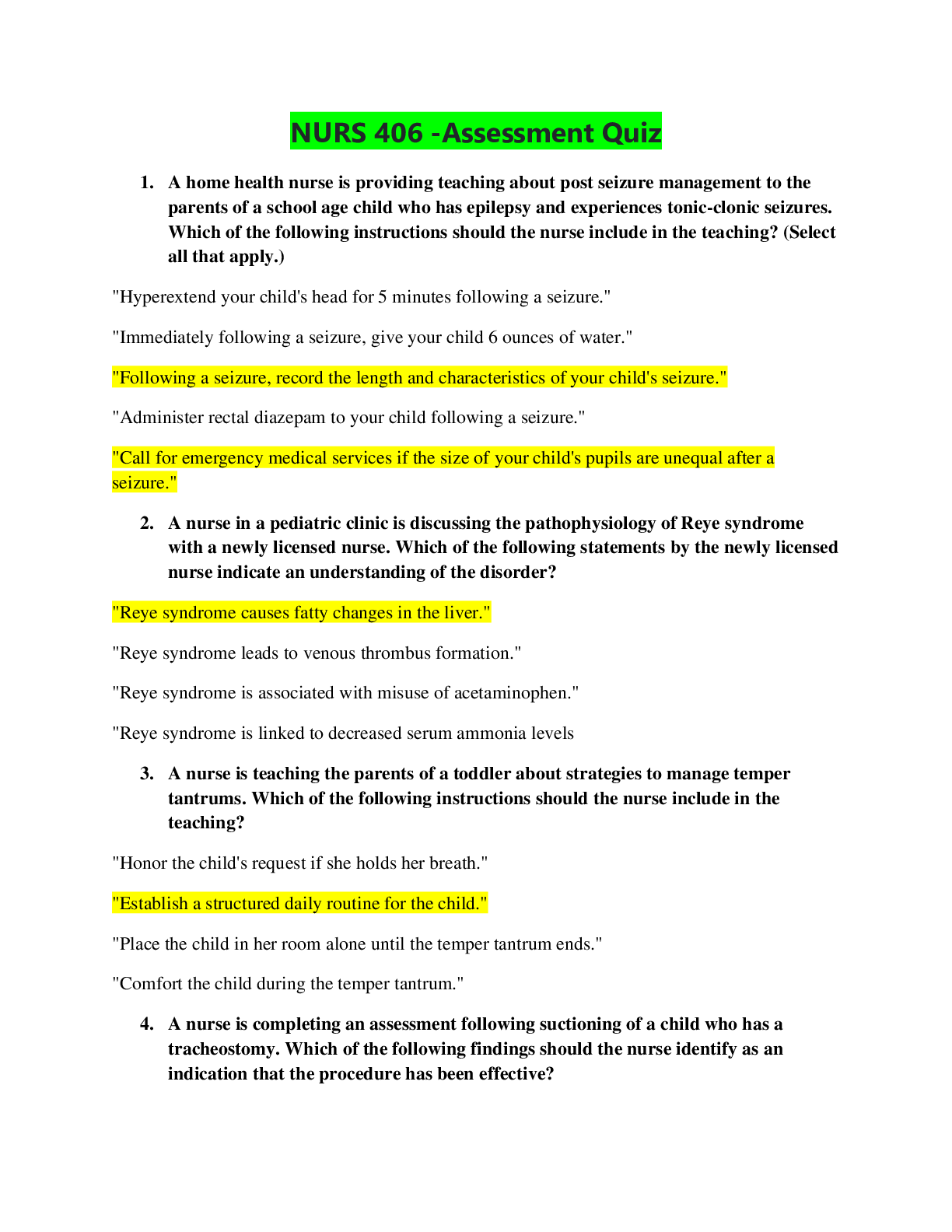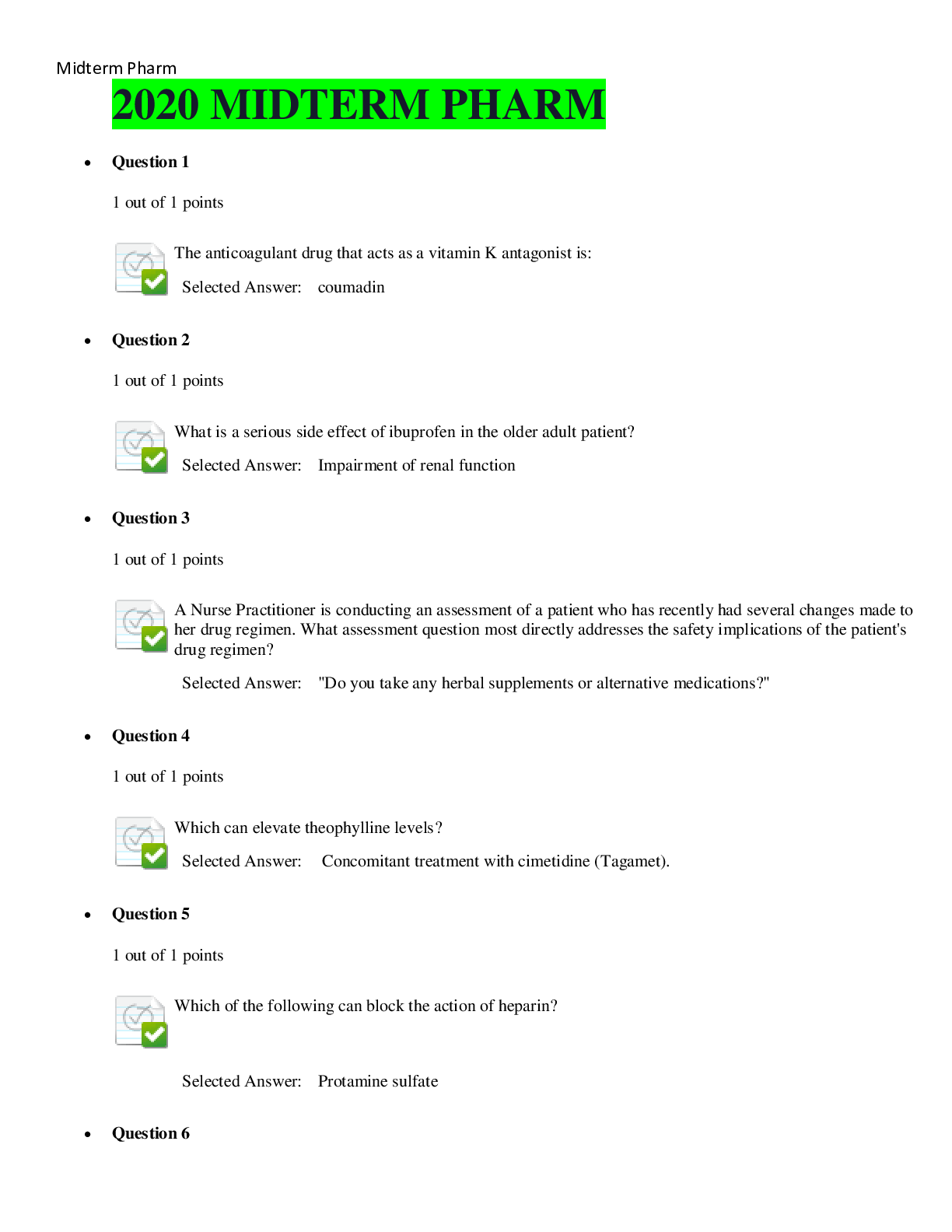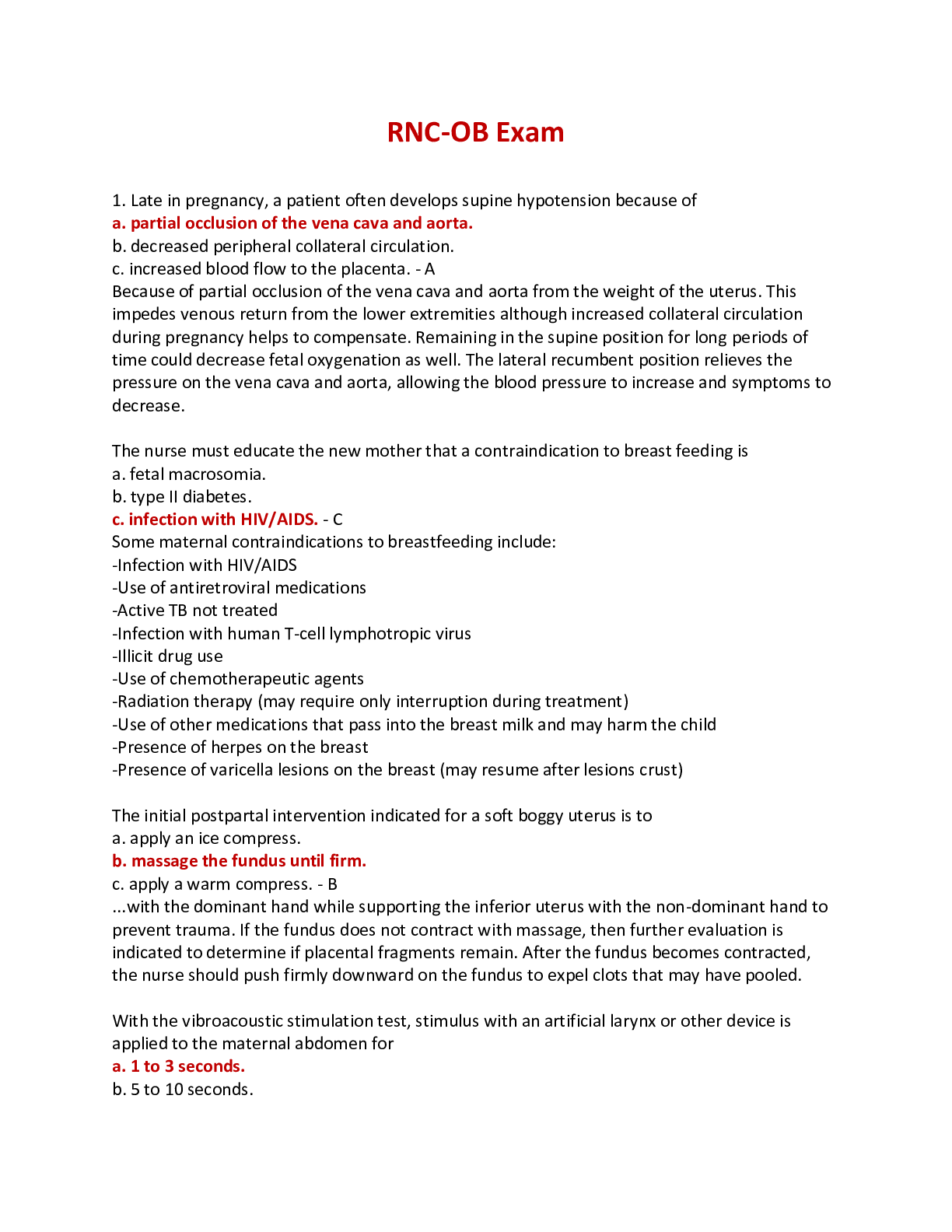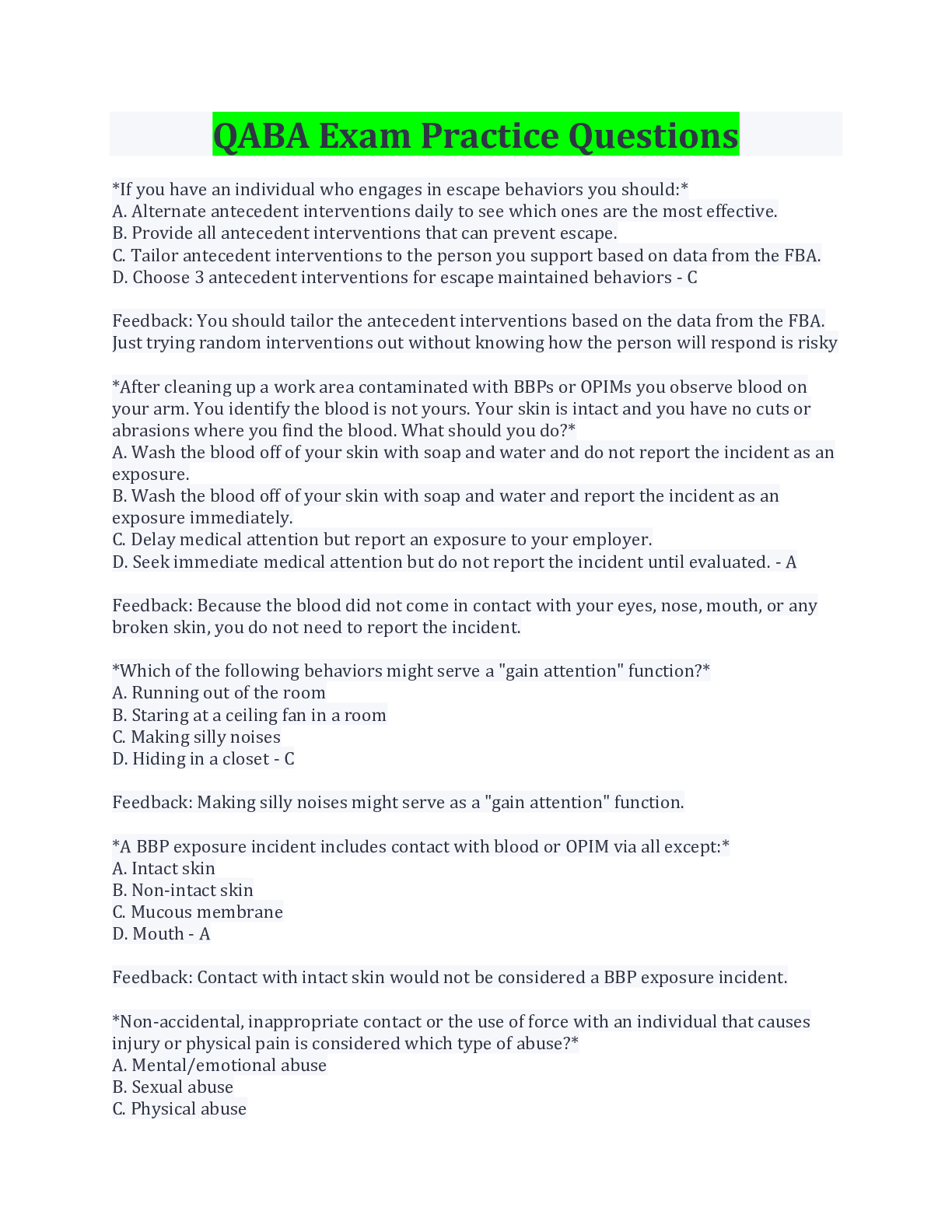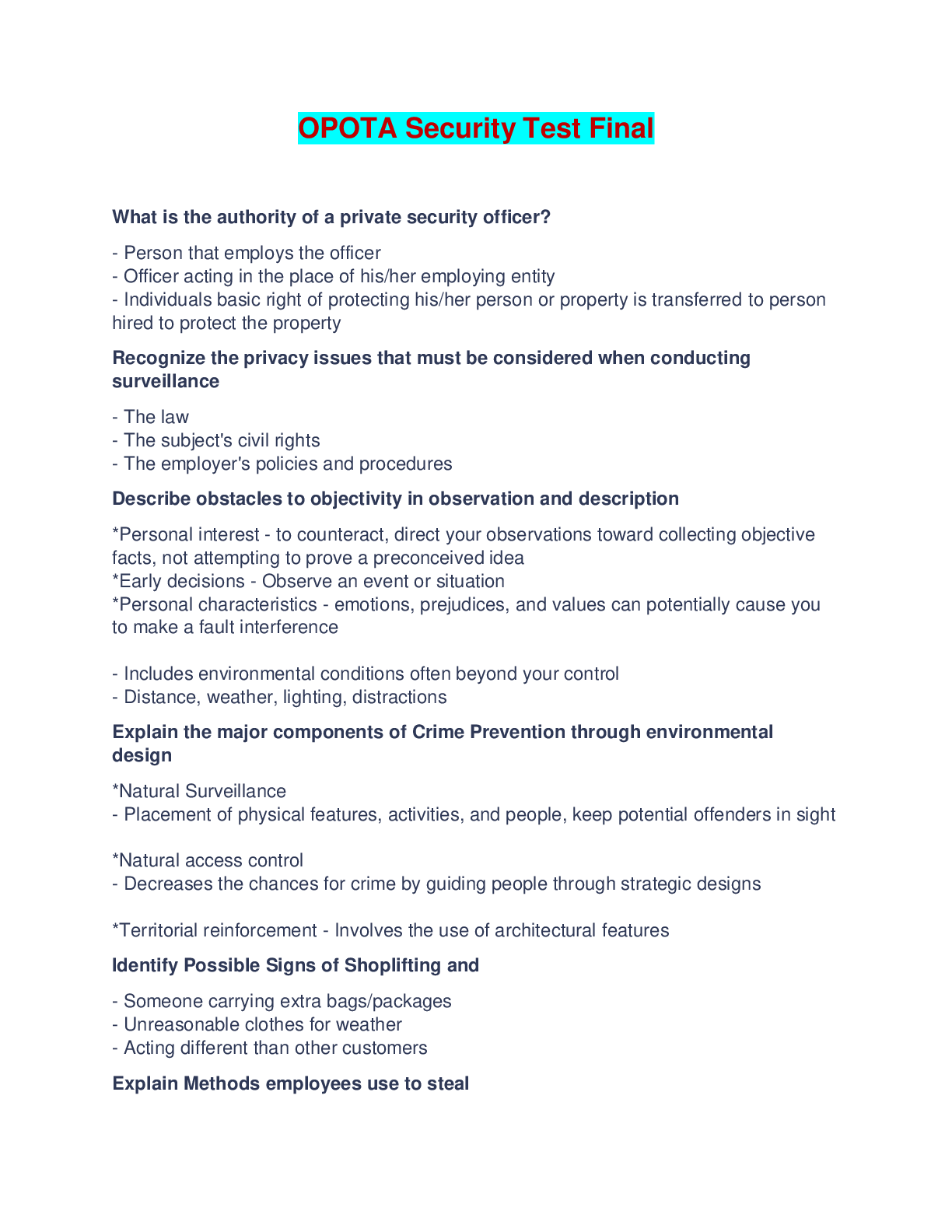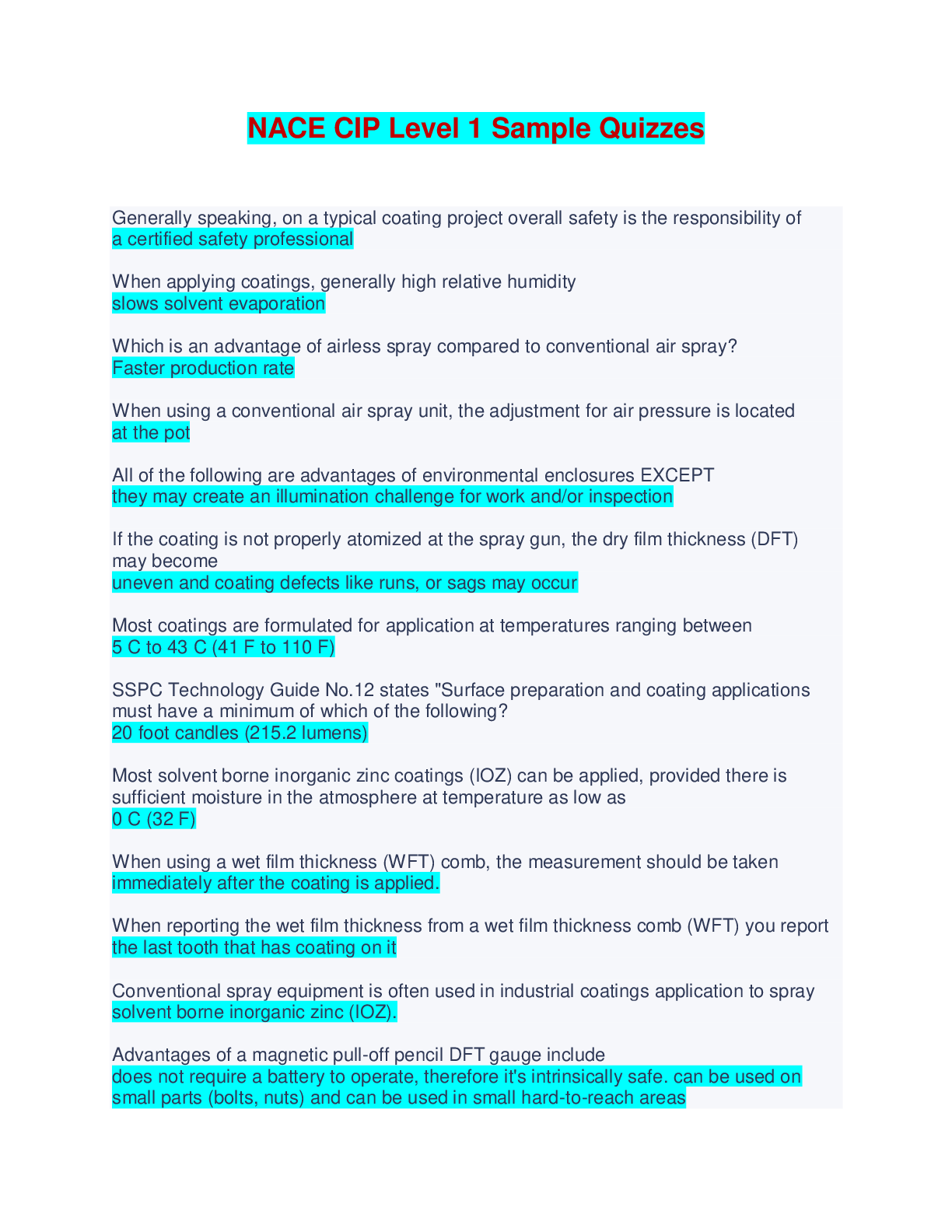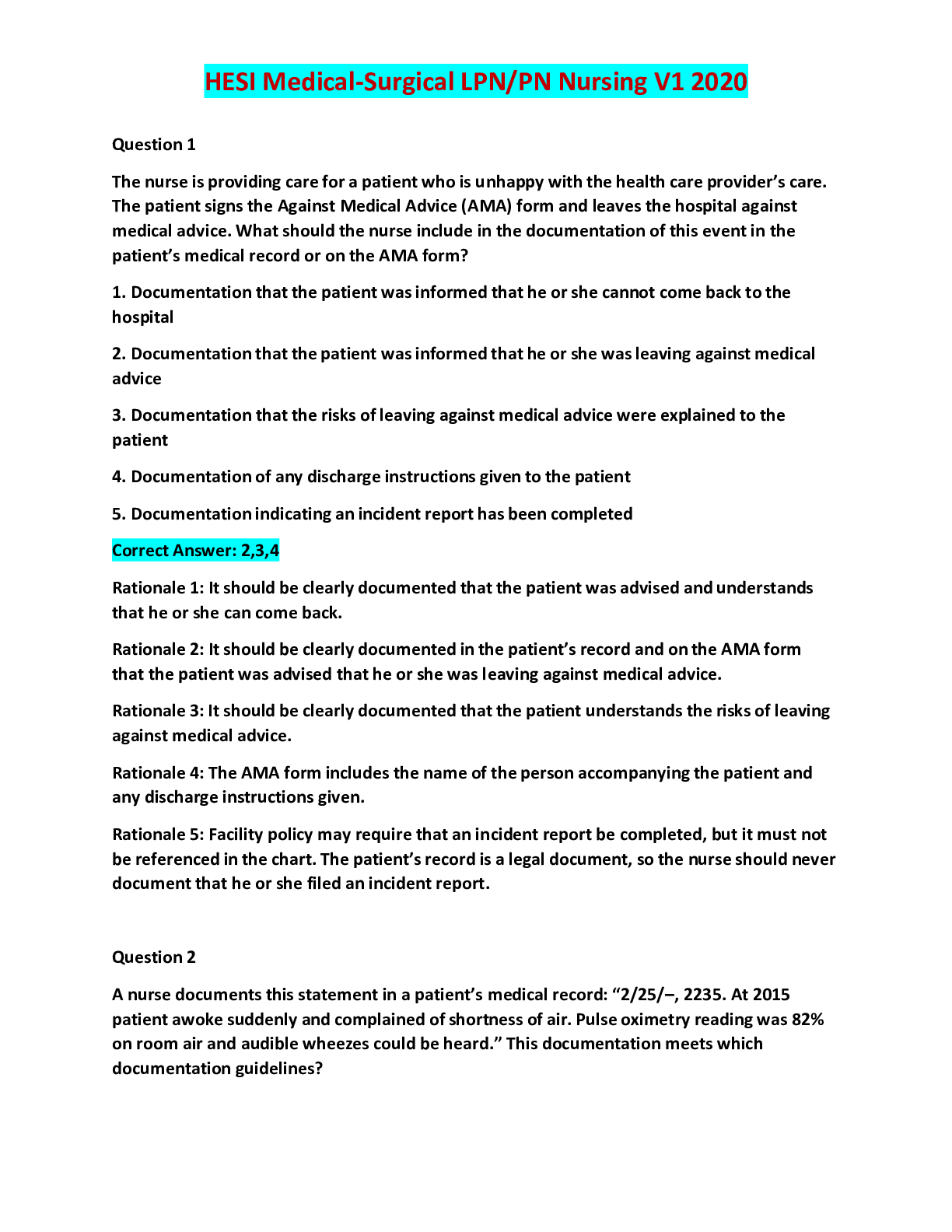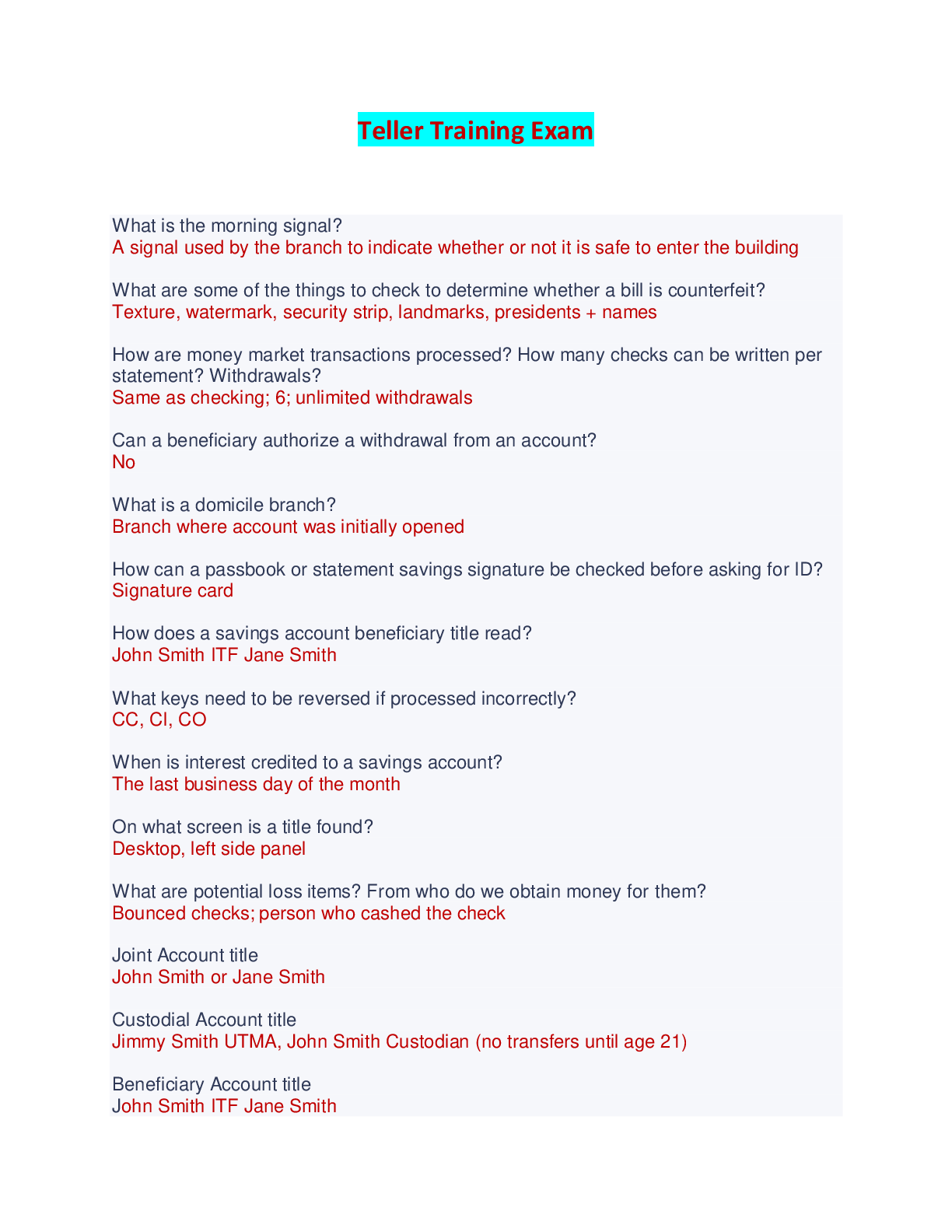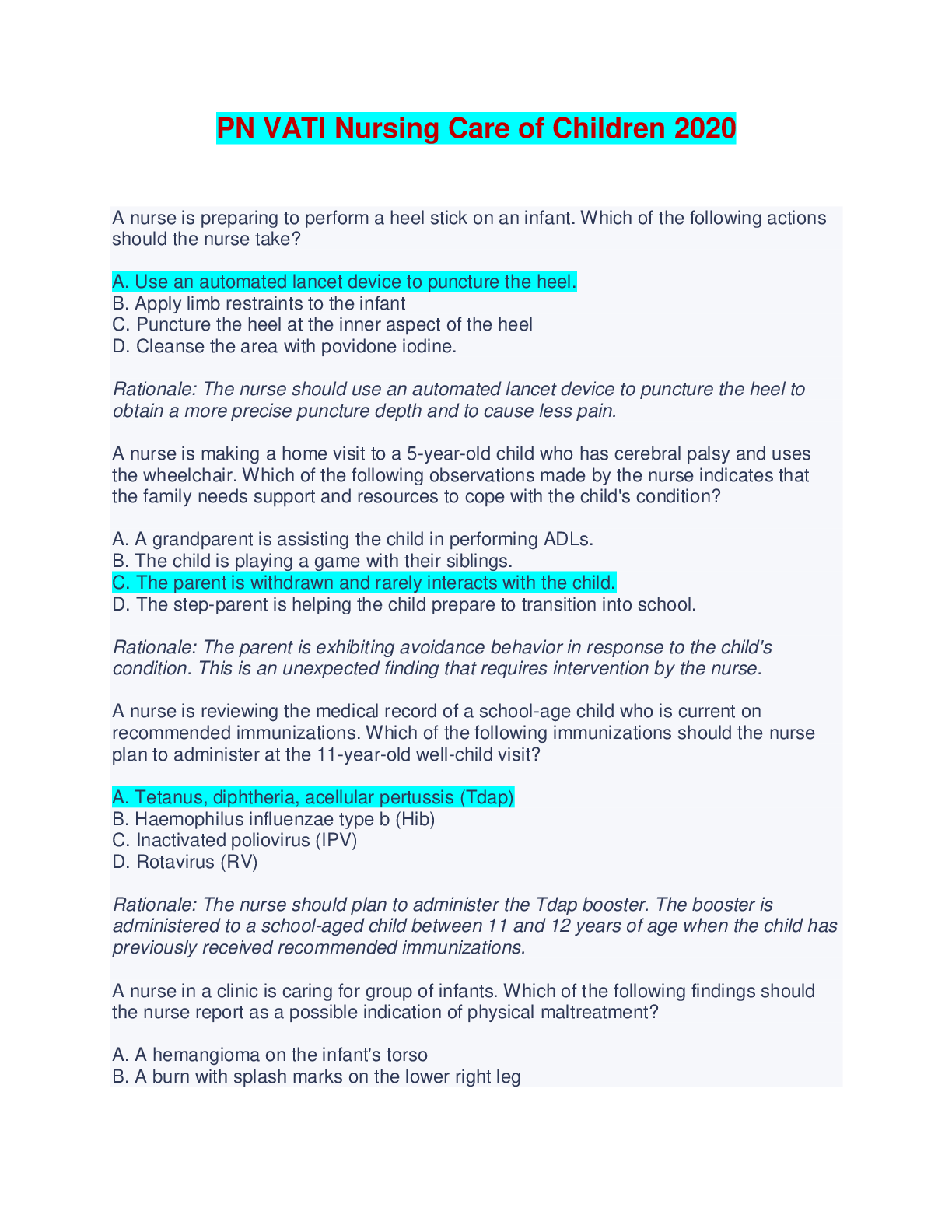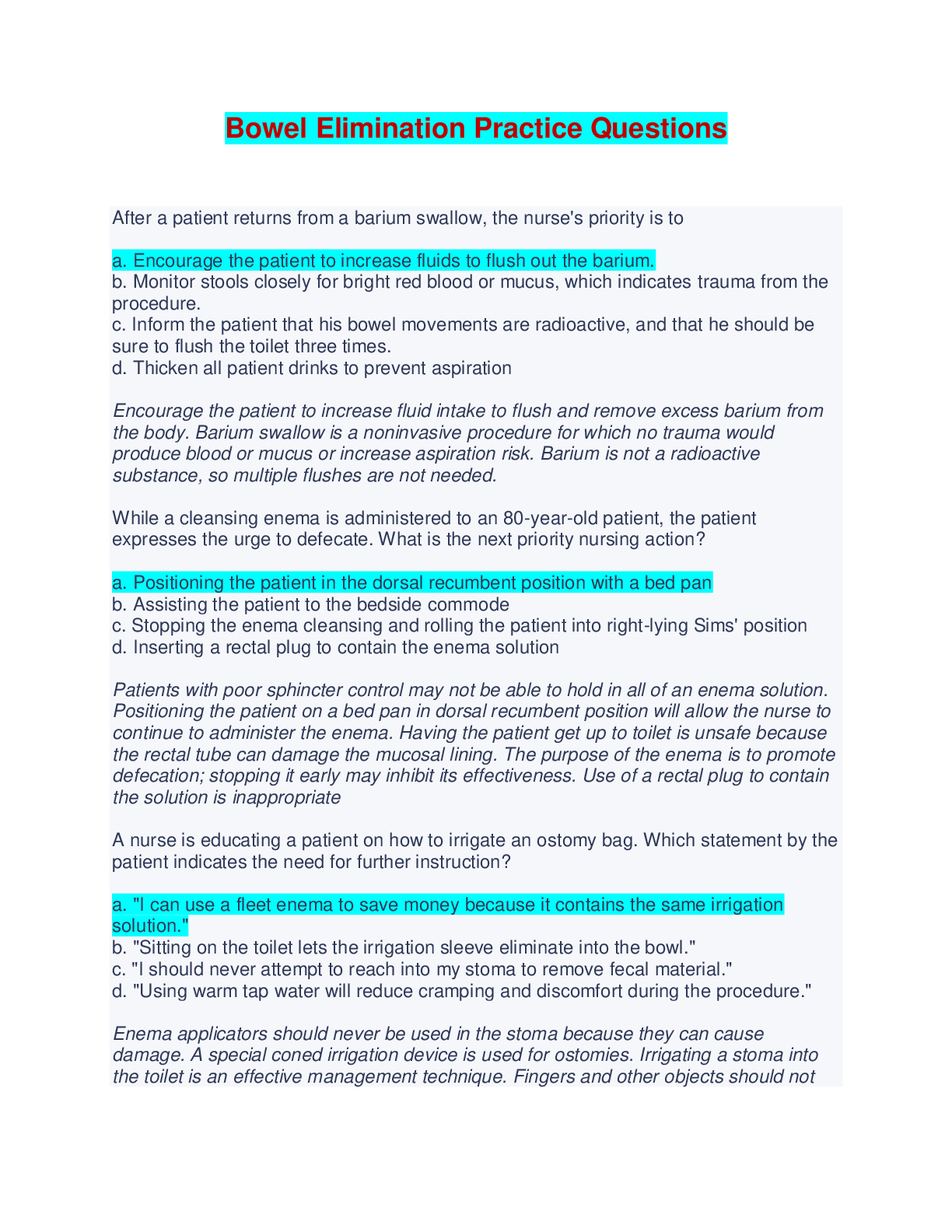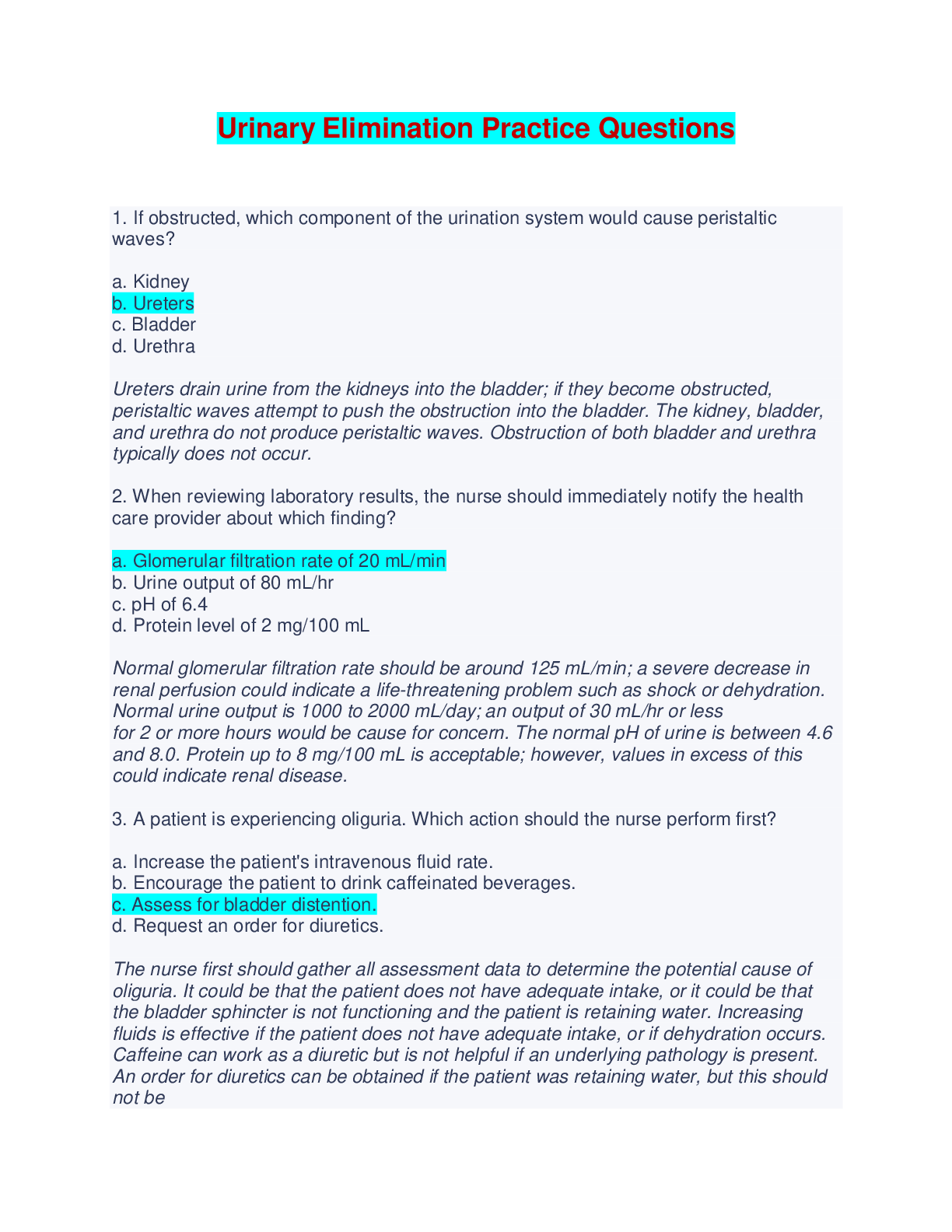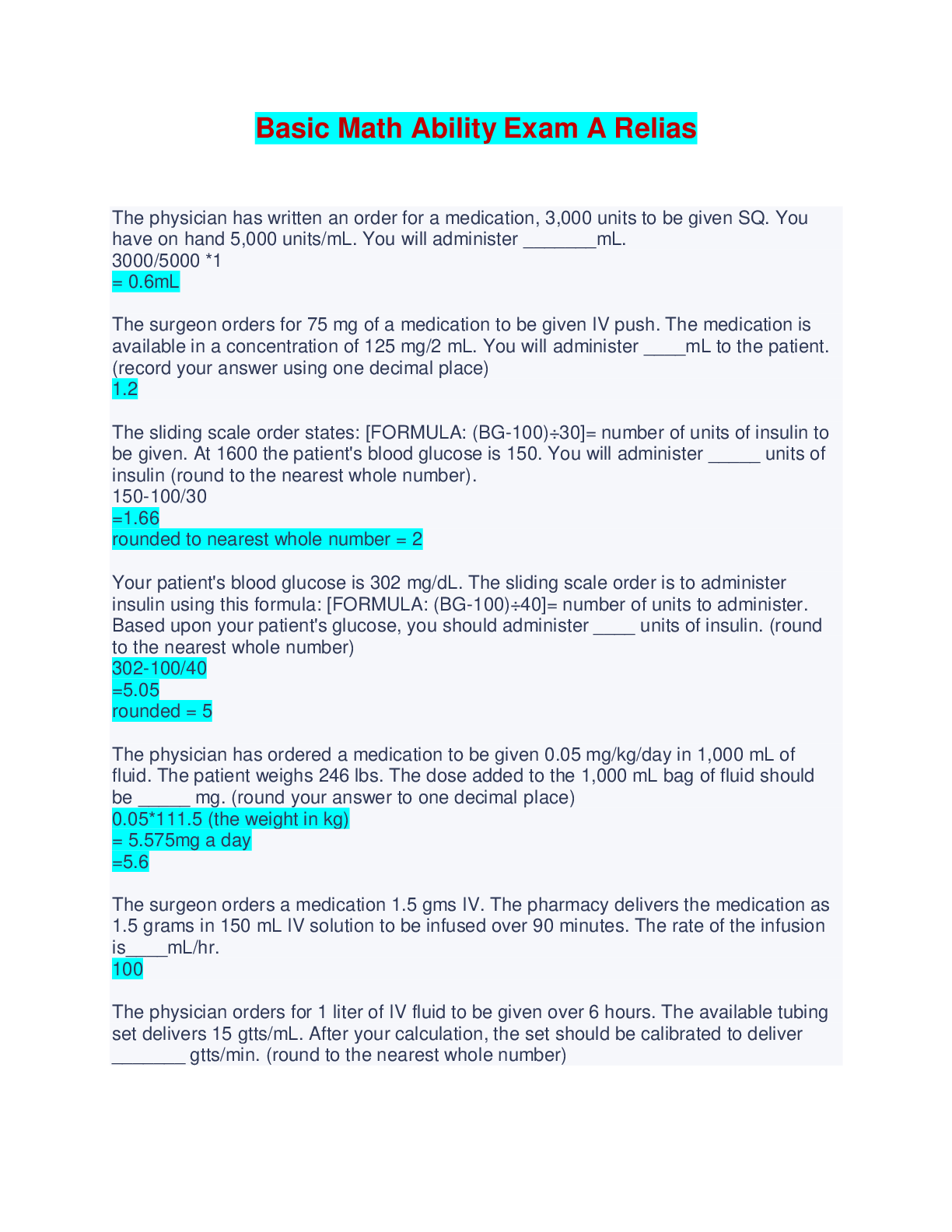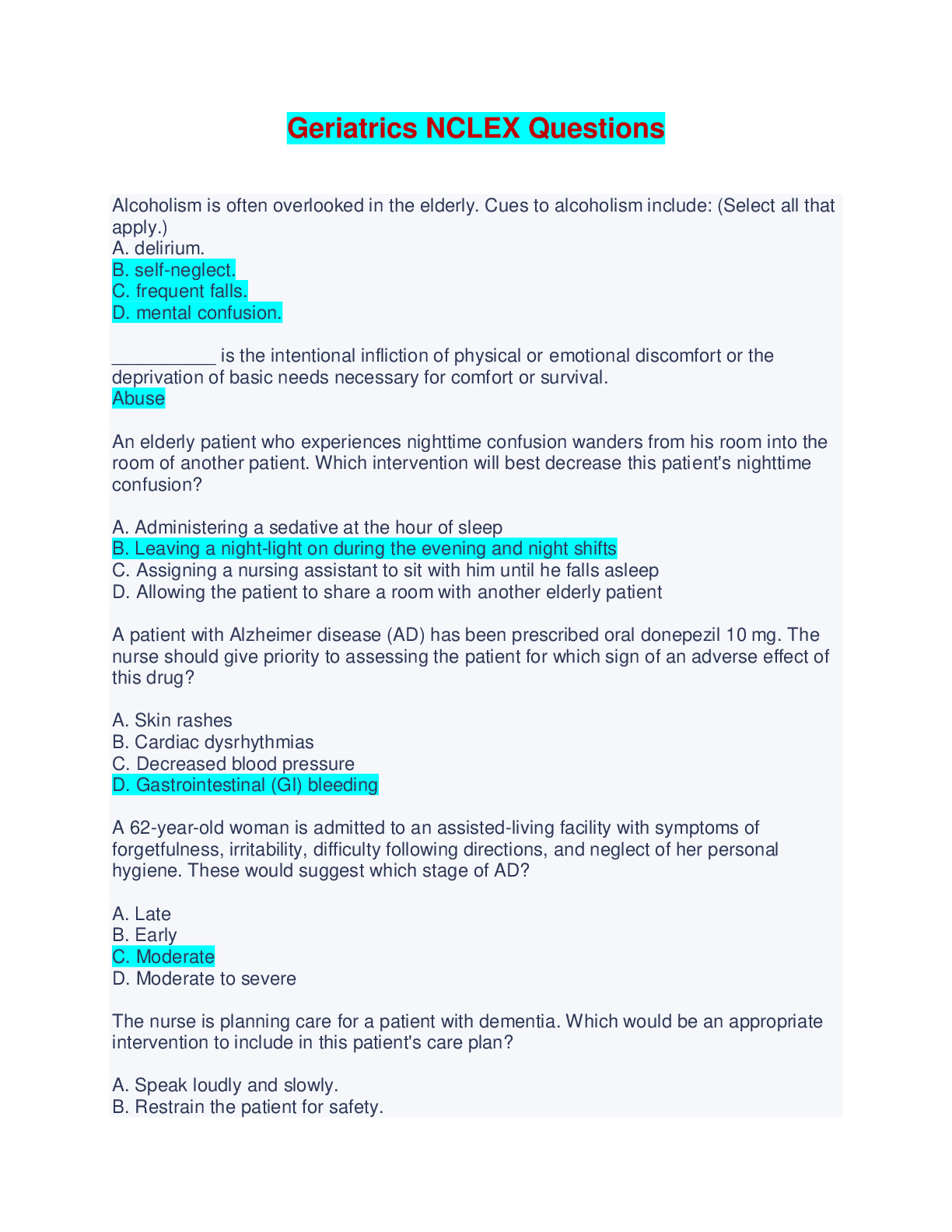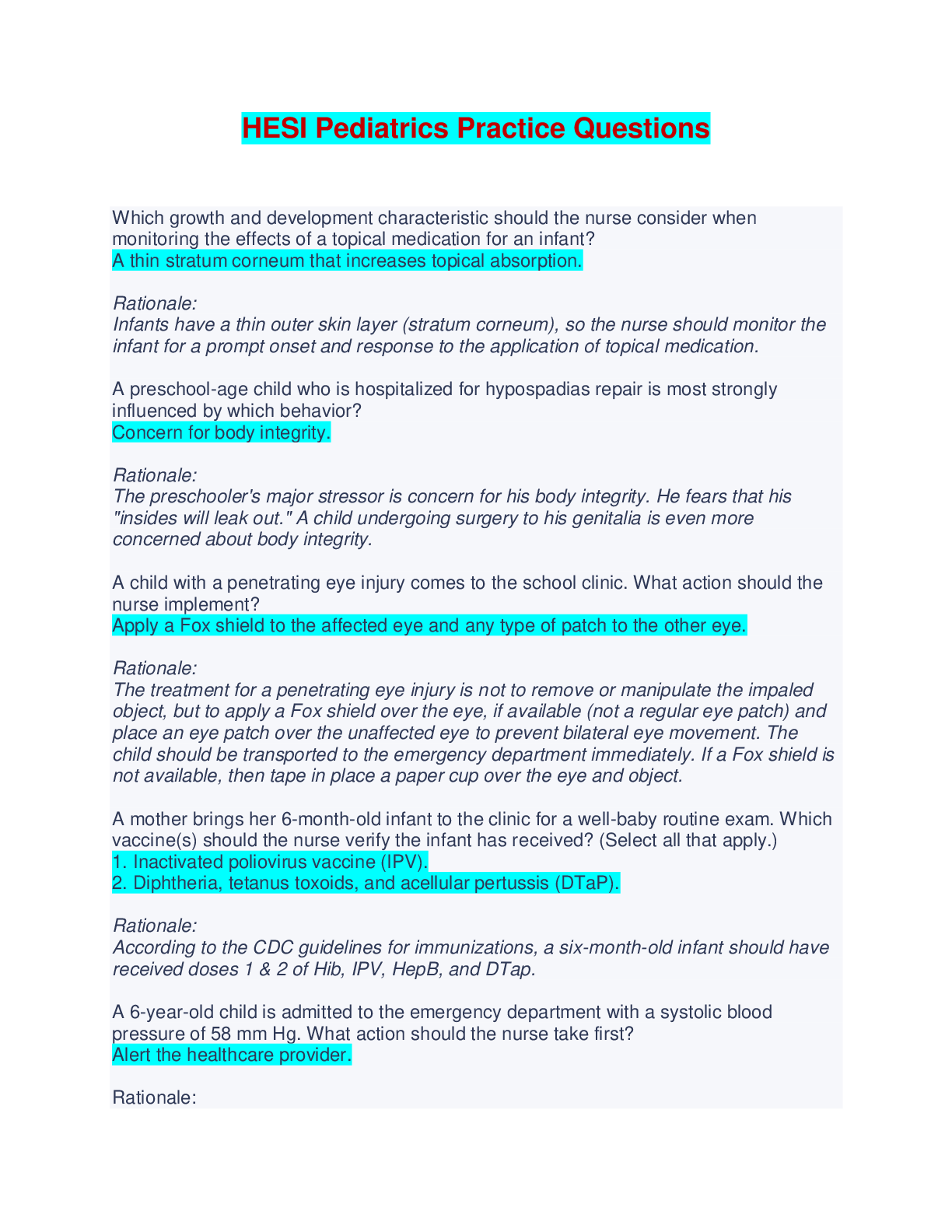Medicine > EXAM > Mental Health & Neurological Health Problems Exam 2 - Answered with Rationales (All)
Mental Health & Neurological Health Problems Exam 2 - Answered with Rationales
Document Content and Description Below
Mental Health & Neurological Health Problems Exam 2 - Answered with Rationales An 80-year-old patient becomes apathetic, with decreased alertness and a slowing of speech several days after hip repla... cement surgery alternating with long periods of lucidity. What is the most likely cause of these symptoms? a. Anesthesia effects b. Delirium c. Pain medications d. Stroke An acute presentation of these symptoms is most likely delirium since they alternate with lucid periods. The other causes may contribute to delirium by intensifying it. REF: Clinical Presentation A patient with dementia experiences agitation and visual hallucinations and is given haloperidol with a subsequent worsening of symptoms. Based on this response, what is the likely cause of this patient's symptoms? a. Alzheimer's disease b. Lewy body dementia c. Pseudodementia d. Vascular neurocognitive disorder Patients with Lewy body dementia may present with these symptoms and will have an increased sensitivity to neuroleptics; when given haloperidol for agitation, will actually get worse. The other causes do not have these characteristic symptoms and are not sensitive to neuroleptics in this manner. REF: Clinical Presentation A patient with Alzheimer's disease (AD) is taking donepezil to treat cognitive symptoms. The patient's son reports noting increased social withdrawal and sleep impairment. What is the initial step to manage these symptoms? a. Encourage activity and exercise b. Prescribe a selective serotonin reuptake inhibitor c. Recommend risperidone d. Referral to a neurologist for evaluation Patients with AD may have improvement in depression with nonpharmacologic management, including exercise and increased activity. If this is not effective, an SSRI may be prescribed. Risperidone, and other antipsychotics should not be prescribed. REF: Management An elderly patient has symptoms of depression and the patient's daughter asks about possible Alzheimer's disease since there is a family history of this disease. A screening evaluation shows no memory loss. What is the initial step in managing this patient? a. Order brain imaging studies such as CT or MRI b. Perform genetic testing to identify true risk c. Prescribe a trial of an antidepressant medication d. Recommend a trial of a cholinesterase inhibitor drug Elderly patients with depression who do not have other signs of AD may be given a trial of antidepressant medications initially in order to evaluate these symptoms. Brain imaging studies are not indicated initially. Genetic testing is not indicated. Once the degree of depression is determined and if other symptoms appear, an anticholinesterase inhibitor may be ordered. REF: Clinical Presentation/Diagnostics A patient reports a recurrent sensation of spinning associated with nausea and vomiting. Which test will the provider order to confirm a diagnosis for this patient? a. Electroencephalogram b. Holter monitoring and electrocardiogram c. Neuroimaging with computerized tomography d. The Hallpike-Dix positioning maneuver This patient has symptoms consistent with a vestibular lesion, so the provider will order a Hallpike-Dix positioning maneuver to evaluate vestibular function. If seizure activity is suspected, an electroencephalogram will be ordered. Holter monitoring and ECG are used if patients report syncope or lightheadedness. Neuroimaging with CT is used when patients possibly have a central lesion which would present with difficulty balancing. REF: Clinical Presentation/ Diagnostics An elderly patient reports sensations of being off balance when walking, but does not experience dizziness. The provider will refer this patient to which specialist for further evaluation? a. Audiologist b. Cardiologist c. Neurologist d. Otolaryngologist This patient has problems of balance without dizziness, suggestive of a central neural lesion and should be referred to a neurologist. Patients with vertigo are likely to have vestibular dysfunction and would be referred to an otolaryngologist and possibly an audiologist if hearing is affected. Patients with syncope or lightheadedness are more likely to have an underlying cardiac disorder and would be referred to a cardiologist. REF: Clinical Presentation/Management Which diagnostic test helps confirm a diagnosis of Guillain-Barre syndrome in a patient who is developing muscle weakness and paresthesias? a. Lumbar puncture b. MRI imaging c. Nerve conduction studies d. Screening for systemic infection A lumbar puncture is the most important confirmatory test showing albuminocytologic disassociation. MRI imaging typically is not necessary unless there is concern for spine pathology, but does not diagnose GBS. Nerve conduction studies are not necessary for the diagnosis. Screening for systemic infection is based on history and does not diagnose GBS.REF: Diagnostics Which monitoring parameters are necessary when caring for a patient with Guillain-Barre syndrome? Select all that apply. a. Bladder scans b. Cardiac telemetry c. Imaging studies d. Fever e. Vital capacity measures Urinary retention can cause discomfort and infection, so assessment of urinary retention is necessary. Cardiac telemetry is essential, as are measures of pulmonary function. Imaging studies are not essential. REF: Management Following an upper respiratory infection, a patient begins to develop ataxia and distal paresthesias, along with oculomotor symptoms and double vision. Based on these presenting symptoms which type of GBS does this patient have? a. Acute inflammatory demyelinating polyradiculoneuropathy (AIDP) b. Acute motor axonal neuropathy (AMAN) c. Classic Guillain-Barre syndrome d. Miller Fisher syndrome (MFS) Miller Fisher syndrome has oculomotor symptoms. Patients with this type tend to peak sooner and recover more completely and quickly. REF: Clinical Presentation A patient has recurrent cluster headaches and asks about abortive therapy. Which therapy is effective for a majority of patients with cluster headaches? a. Lithium b. NSAIDs [Show More]
Last updated: 2 months ago
Preview 1 out of 17 pages
Instant download
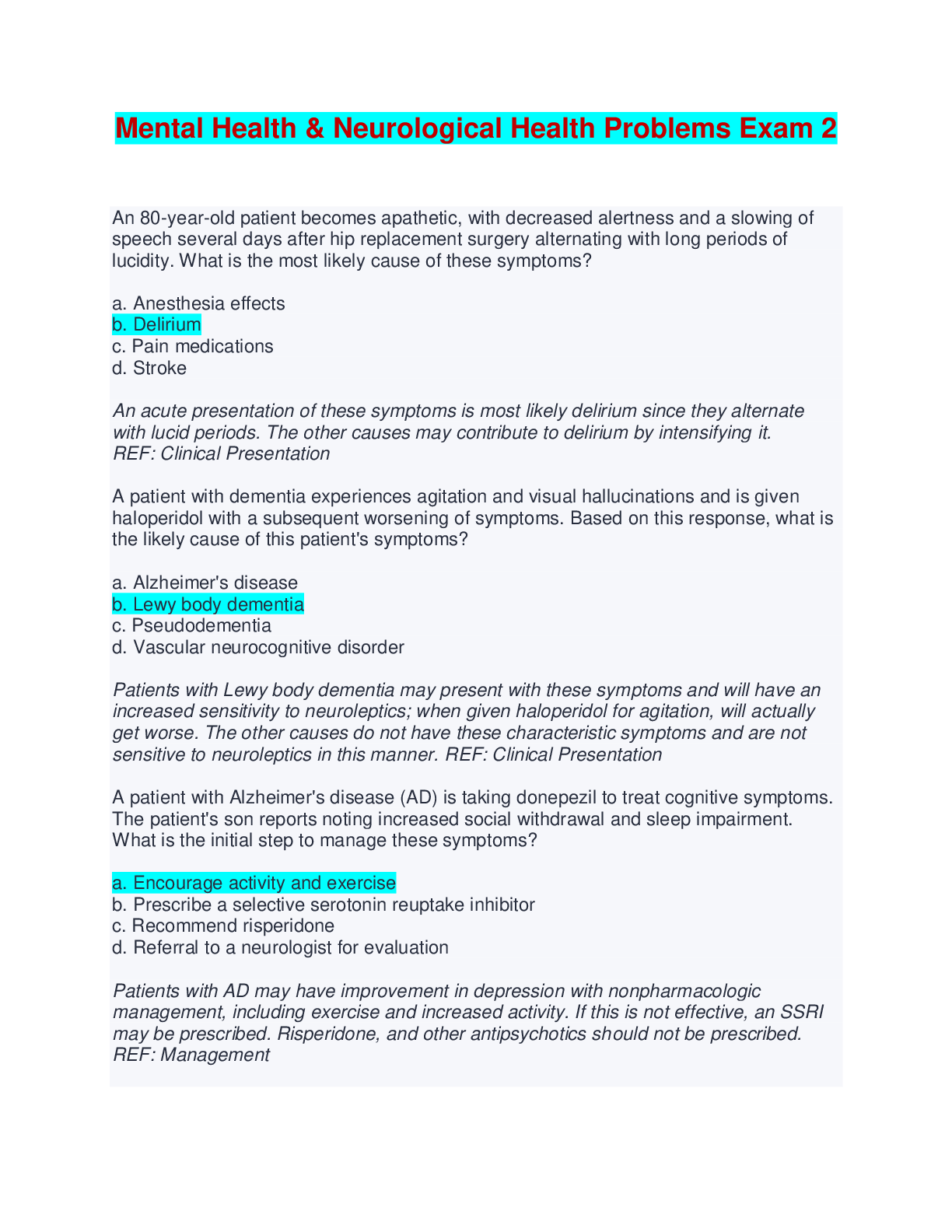
Buy this document to get the full access instantly
Instant Download Access after purchase
Add to cartInstant download
Reviews( 0 )
Document information
Connected school, study & course
About the document
Uploaded On
Mar 27, 2024
Number of pages
17
Written in
Additional information
This document has been written for:
Uploaded
Mar 27, 2024
Downloads
0
Views
23

